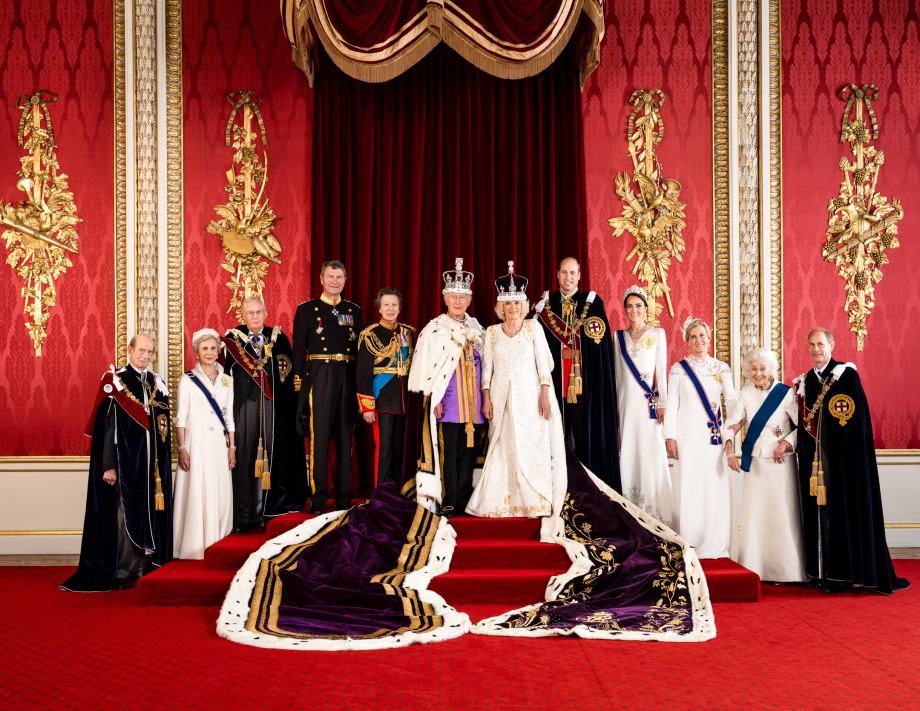Official figures put price of event at £72m but anti-monarchy group Republic says real cost is likely much more…reports Asian Lite News
The coronation of King Charles in May 2023 cost taxpayers at least £72m, official figures have revealed.
The cost of policing the ceremony was £21.7m, with a further £50.3m in costs racked up by the Department for Culture, Media and Sport. About 20 million people in Britain watched Charles crowned at Westminster Abbey on TV, substantially fewer than the 29 million Britons who had watched the funeral of Queen Elizabeth II in 2022.
The coronation ceremony was attended by dignitaries from around the world, and a star-studded concert took place at Windsor Castle the following night.
The annual report and accounts of DCMS, the lead department in Rishi Sunak’s government that worked with the royal household on the coronation, stated that the department “successfully delivered on the central weekend of His Majesty King Charles III’s coronation, enjoyed by many millions both in the UK and across the globe”.
It described the coronation as a “once-in-a-generation moment” that enabled the “entire country to come together in celebration”, as well as offering “a unique opportunity to celebrate and strengthen our national identity and showcase the UK to the world”.
Republic, which campaigns to replace the monarchy with an elected head of state and more democratic political system, described the coronation as an “obscene” waste of taxpayers’ money.
“I would be very surprised if £72m was the whole cost,” the Republic CEO, Graham Smith said. As well as the Home Office policing and DCMS costs included in the figures, he said the Ministry of Defence, Transport for London, fire brigades and local councils also incurred costs related to the coronation, with other estimates putting the totalspend at between £100m and £250m.
“But even that kind of money – £72m – is incredible,” Smith added. “It’s a huge amount of money to spend on one person’s parade when there was no obligation whatsoever in the constitution or in law to have a coronation, and when we were facing cuts to essential services.
“It was a parade that Charles insisted on at huge expense to the taxpayer, and this is on top of the huge inheritance tax bill he didn’t [have to] pay, on top of the £500m-a-year cost of the monarchy.”
Under a clause agreed in 1993 by the then prime minister, John Major, any inheritance passed “sovereign to sovereign” avoids the 40% levy applied to assets valued at more than £325,000.
Smith added: “It was an extravagance we simply didn’t have to have. It was completely unnecessary and a waste of money in the middle of a cost of living crisis in a country that is facing huge amounts of child poverty. When kids are unable to afford lunches at school, to spend over £70m on this parade is obscene.”
Demand to rescind honour awarded to king of Bahrain
Meanwhile, King Charles has been asked by exiles from Bahrain to rescind an honour he bestowed this week on the ruler of the Gulf kingdom.
Charles was told in a letter by the exiles: “It is personally difficult for us to view this honour as anything other than a betrayal of victims who have suffered at the hands of King Hamad and his brutal regime.”
Buckingham Palace had been accused of “burying” the news that Charles had bestowed the Honorary Knight Grand Cross of the Royal Victorian Order (GCVO) on King Hamad bin Isa al-Khalifa.
It was the Gulf state’s official news agency that announced on Tuesday that Charles had made the award, which was covered on the front pages of Bahrain’s newspapers.
However, Bahraini exiles in the UK and supporters have questioned why no mention was made of the award in Buckingham Palace’s own announcement that Charles had hosted Bahrain’s king at Windsor Castle. The awarding of the honour was announced by Buckingham Palace in a press release issued on Wednesday evening.
The Bahraini government has in effect silenced political opposition, banned independent media and subjected internal opponents to brutal treatment including torture and denial of medical care, according to Human Rights Watch. One of the signatories to the letter to Charles was Sayed Ahmed Alwadaei, who was granted refugee status in the UK in 2012 and described himself in it as a “victim of King Hamad’s regime” and a survivor of torture.
“We sincerely hope that the extent and gravity of our suffering is conveyed through this letter and provides sufficient reason for Your Majesty to urgently reconsider the decision and rescind the award to Bahrain’s king,” Charles was told in the letter.
Bahraini newspapers have covered the award prominently on their front pages, including with pictures of Charles and King Hamad. Alastair Long, the British ambassador to Bahrain, said in a post on Instagram that Charles held a dinner in honour of King Hamad’s silver jubilee and “appreciated that King Hamad’s rule has been guided by concern and care for his people”.
However, Brian Dooley, a senior adviser to the activist group Human Rights First, said: “It’s startling to see King Hamad being rewarded with social honours when his unelected government has been guilty of so many crimes, including the torture of human rights activists, for so many years.
“He is not a figurehead, he is in charge of – and responsible for – his government’s actions. Why any self-respecting country would want to associate with him is baffling.” The UK has deep trade and defence ties to Bahrain, which gained independence from Britain in 1971 and has served as a base for British naval operations.
ALSO READ: India to set up two new consulates in UK

